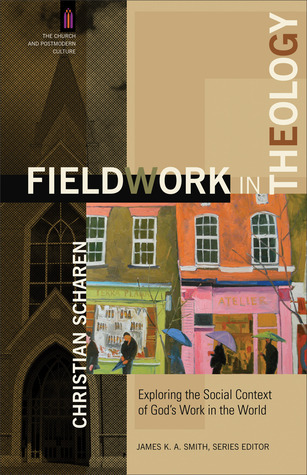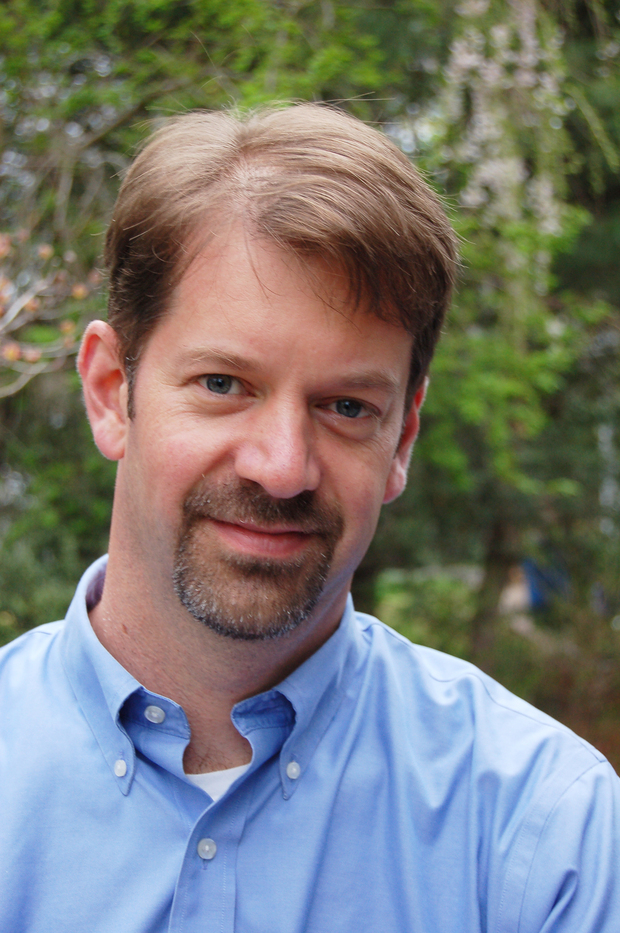


The Church and Postmodern Culture
Series · 10 books · 2006-2015
Books in series

#1
Who's Afraid of Postmodernism?
Taking Derrida, Lyotard, and Foucault to Church
2006
The philosophies of French thinkers Derrida, Lyotard, and Foucault form the basis for postmodern thought and are seemingly at odds with the Christian faith. However, James K. A. Smith claims that their ideas have been misinterpreted and actually have a deep affinity with central Christian claims.
Each chapter opens with an illustration from a recent movie and concludes with a case study considering recent developments in the church that have attempted to respond to the postmodern condition, such as the "emerging church" movement. These case studies provide a concrete picture of how postmodern ideas can influence the way Christians think and worship.
This significant book, winner of a Christianity Today 2007 Book Award, avoids philosophical jargon and offers fuller explanation where needed. It is the first book in the Church and Postmodern Culture series, which provides practical applications for Christians engaged in ministry in a postmodern world.

#2
What Would Jesus Deconstruct?
The Good News of Postmodernism for the Church
2007
This provocative addition to The Church and Postmodern Culture series offers a lively rereading of Charles Sheldon's In His Steps as a constructive way forward. John D. Caputo introduces the notion of why the church needs deconstruction, positively defines deconstruction's role in renewal, deconstructs idols of the church, and imagines the future of the church in addressing the practical implications of this for the church's life through liturgy, worship, preaching, and teaching. Students of philosophy, theology, religion, and ministry, as well as others interested in engaging postmodernism and the emerging church phenomenon, will welcome this provocative, non-technical work.

#3
GloboChrist
The Great Commission Takes a Postmodern Turn
2008
The information age has not only interconnected the world but has also shrunk it. This global dynamic impacts Christianity, especially the Great Commission. How do believers make disciples of all nations in this digital world of religious diversity? Carl Raschke, author of the acclaimed The Next Reformation, answers such questions in Globo Christ. He explores the impact of globalization, postmodernism, and information technology on missions and evangelism, as well as the role that Christianity plays in an increasingly pluralistic world. In short, he helps Christians respond to the tectonic shifts of the twentyfirst century. This third volume in the well received Church and Post modern Culture series is relevant to students, pastors, and all who care about the future of the church.

#4
Whose Community? Which Interpretation?
Philosophical Hermeneutics for the Church
2009
In this volume, renowned philosopher Merold Westphal introduces current philosophical thinking related to interpreting the Bible. Recognizing that no theology is completely free of philosophical "contamination," he engages and mines contemporary hermeneutical theory in service of the church. After providing a historical overview of contemporary theories of interpretation, Westphal addresses postmodern hermeneutical theory, arguing that the relativity embraced there is not the same as the relativism in which "anything goes." Rather, Westphal encourages us to embrace the proliferation of interpretations based on different perspectives as a way to get at the richness of the biblical text.

#5
The Politics of Discipleship
Becoming Postmaterial Citizens
2009
Internationally acclaimed theologian Graham Ward is well known for his thoughtful engagement with postmodernism. This volume, the fourth in The Church and Postmodern Culture series, offers an engaging look at the political nature of the postmodern world.
In the first section, "The World," Ward considers "the signs of the times" and the political nature of contemporary postmodernism. It is imperative, he suggests, that the church understand the world to be able to address it thoughtfully. In the second section, "The Church," he turns to practical application, examining what faithful discipleship looks like within this political context. Clergy and those interested in the emerging church will find this work particularly thought provoking.

#6
The Economy of Desire
Christianity and Capitalism in a Postmodern World
2012
In this addition to the award-winning Church and Postmodern Culture series, respected theologian Daniel Bell compares and contrasts capitalism and Christianity, showing how Christianity provides resources for faithfully navigating the postmodern global economy. Bell approaches capitalism and Christianity as alternative visions of humanity, God, and the good life. Considering faith and economics in terms of how desire is shaped, he casts the conflict as one between different disciplines of desire. He engages the work of two important postmodern philosophers, Deleuze and Foucault, to illuminate the nature of the postmodern world that the church currently inhabits. Bell then considers how the global economy deforms desire in a manner that distorts human relations with God and one another. In contrast, he presents Christianity and the tradition of the works of mercy as a way beyond capitalism and socialism, beyond philanthropy and welfare. Christianity heals desire, renewing human relations and enabling communion with God.

#7
Liturgy as a Way of Life
Embodying the Arts in Christian Worship
2006
How do the arts inform and cultivate our service to God? In this addition to an award-winning series, distinguished philosopher Bruce Ellis Benson rethinks what it means to be artistic. Rather than viewing art as practiced by the few, he recovers the ancient Christian idea of presenting ourselves to God as works of art, reenvisioning art as the very core of our being: God calls us to improvise as living works of art. Benson also examines the nature of liturgy and connects art and liturgy in a new way. This book will appeal to philosophy, worship/liturgy, art, music, and theology students as well as readers interested in engaging issues of worship and aesthetics in a postmodern context, including Christian artists and worship leaders.

#8
Who's Afraid of Relativism?
Community, Contingency, and Creaturehood
2014
Following his successful Who's Afraid of Postmodernism?, leading Christian philosopher James K. A. Smith introduces the philosophical sources behind postliberal theology. Offering a provocative analysis of relativism, Smith provides an introduction to the key voices of pragmatism: Ludwig Wittgenstein, Richard Rorty, and Robert Brandom. Many Christians view relativism as the antithesis of absolute truth and take it to be the antithesis of the gospel. Smith argues that this reaction is a symptom of a deeper theological problem: an inability to honor the contingency and dependence of our creaturehood. Appreciating our created finitude as the condition under which we know (and were made to know) should compel us to appreciate the contingency of our knowledge without sliding into arbitrariness. Saying "It depends" is not the equivalent of saying "It's not true" or "I don't know." It is simply to recognize the conditions of our knowledge as finite, created, social beings. Pragmatism, says Smith, helps us recover a fundamental Christian appreciation of the contingency of creaturehood.
This addition to an acclaimed series engages key thinkers in modern philosophy with a view to ministry and addresses the challenge of relativism in a creative, original way.

#9
Fieldwork in Theology
Exploring the Social Context of God's Work in the World
2015
In this addition to the acclaimed The Church and Postmodern Culture series, skilled theologian Christian Scharen examines the relationship between theology and its social context. He engages with leading postmodern thinker and social theorist Pierre Bourdieu to offer helpful theoretical and theological grounding to those who want to reflect critically on the faith and practice of the church, particularly for those undertaking ministry internships or fieldwork assignments. As Scharen helps a wide array of readers to understand the social context of doing theology, he articulates a vision for the church's involvement with what God is doing in the world and provides concrete examples of churches living out God's mission.

#10
From Nature to Creation
A Christian Vision for Understanding and Loving Our World
2015
How does Christianity change the way we view the natural world? In this addition to a critically acclaimed series, renowned theologian Norman Wirzba engages philosophers, environmentalists, and cultural critics to show how the modern concept of nature has been deeply problematic. He explains that understanding the world as creation rather than as nature or the environment makes possible an imagination shaped by practices of responsibility and gratitude, which can help bring healing to our lands and communities. By learning to give thanks for creation as God’s gift of life, Christians bear witness to the divine love that is reconciling all things to God.
Authors

Norman Wirzba
Author · 9 books
Norman Wirzba is Professor of Theology and Ecology at Duke University Divinity School and a pioneer of scholarly work on religion, philosophy, ecology, and agrarianism. He is also the author of Food and Faith, Living the Sabbath, The Paradise of God, and From Nature to Creation. He lives near Hillsborough, North Carolina.

John D. Caputo
Author · 25 books
John D. Caputo is an American philosopher who is the Thomas J. Watson Professor of Religion Emeritus at Syracuse University and the David R. Cook Professor of Philosophy Emeritus at Villanova University. Caputo is a major figure associated with Postmodern Christianity, Continental Philosophy of Religion, as well as the founder of the theological movement known as weak theology. Much of Caputo's work focuses on hermeneutics, phenomenology, deconstruction and theology.

Daniel M. Bell Jr.
Author · 3 books
Daniel M. Bell Jr. (PhD, Duke University) is professor of theological ethics at Lutheran Theological Southern Seminary in Columbia, South Carolina. He is an ordained elder in the United Methodist Church and the author of Just War as Christian Discipleship and Liberation Theology after the End of History.

Christian Scharen
Author · 3 books
Christian Scharen (PhD, Emory University) is vice president of applied research at Auburn Theological Seminary in New York City, New York. He has authored a number of books, including One Step Closer, and is the book review editor of Ecclesial Practices.

Bruce Ellis Benson
Author · 6 books
Dr. Benson has been a visiting scholar at the New School and a guest lecturer in philosophy of religion at Union Theological Seminary. He is currently the chair of the philosophy department at Wheaton College (IL).

Graham Ward
Author · 9 books
Graham Ward is an English theologian and Anglican priest who has been Regius Professor of Divinity at the University of Oxford since 2012. He is a priest of the Church of England and was formerly the Samuel Ferguson Professor of Philosophical Theology and Ethics and the Head of the School of Arts, Histories and Cultures at the University of Manchester. Previous to that he was the Professor of Contextual Theology and Ethics and Senior Fellow in Religion and Gender at the university.
